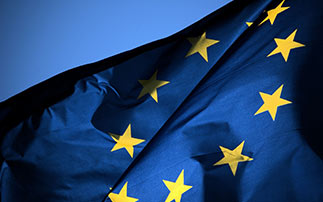The automotive industry, a crucial sector for the Union’s economy, is currently facing an important dilemma: maintaining its place on the international market while complying with the increasingly restrictive environmental regulations imposed by the Union.
Strongly impacted by the 2008 crisis, the European automotive industry has gradually recovered and represents today more than 21% of the global automotive production. This growth was made possible by manufacturers such as Volskwagen, Renault-Nissan and Daimler, ranked among the top 10 worldwide industries in 2017, which were able to innovate and adapt their strategy to new consumers. Nevertheless, even if the automotive industry is essential for the European economy, it must consider Union’s priorities concerning mainly environmental requirements. The recent conflict between the US and the EU over the extension of import duties on steel and aluminum (introduced on June 1st) for European vehicles and auto parts, illustrates the place and importance of the car industry in the EU and which underlines this tricky issue: Ensuring the application of a binding regulatory framework on environmental policy and supporting the competitiveness of the automotive industry without unduly penalising their position on the international market.
Protecting the interests of the automotive industry on the international ground
Indeed the trade dispute over US customs duties ended last July 25th with an agreement between Donald Trump and Jean-Claude Juncker, where the EU has committed itself to increase US soya exports to the EU in exchange for the US promise not to impose additional tariffs on the European car industry. However, the agreement merely postpones the US decision to tax European car exports, without giving it up. It is therefore not surprising to see the Union strengthening its international relations with other countries. The JEFTA agreement, recently concluded with Japan, aims at opening up the European market to Japanese automotive products in exchange for free access for EU agri-food products to Japan. This agreement has yet to be approved by the EU Parliament and is expected to be applied as from 2019.
The development of the automotive industry serving the EU’s environmental policy
The Union’s environmental policy and priorities to be implemented, in particular the “European emission standards”, are among world’s highest standards. Since the 1970s, these regulations have limited air pollutant emissions. They were reinforced by a Clean Mobility Package adopted by the Commission last year, aiming to reduce CO2 emissions by 30% by 2030. In addition to these strict rules, stringent controls on air pollutant emissions from new vehicles are applied. To comply with these standards, manufacturers are forced to be ever more innovative, which involve very often significant costs. Yet, the EU offers many funding opportunities to reach both ‘Smart Mobility’ and ‘Green Growth’. Indeed, through its research and innovation programme, Horizon 2020, and the CEF programme (Connecting Europe Facility), the EU funds innovative projects, bringing manufacturers and researchers together – such as the SOFTCAR project which offers a cleaner and lower cost car and the “Central European Ultra Charging” project which aims to deploy a network of Ultra-Fast Charging Stations for electric vehicles in Central Europe.
Consequently, if the Union’s environmental policy hinders the development of the automotive industry, mainly on the international ground; the implementation of the latter offers various options to car manufacturers to have access to up-to-date innovation at low cost thanks to existing EU funding opportunities. Nevertheless, funding applications are rather complex for some of the organisations due to compelling rules to be respected and which are foreseen to be tightened as from 2021[1]. Adding to that, the granting of European funding to car manufacturers is likely to become even more difficult considering the latest scandal hitting the car industry – after Dieselgate in 2015, manufacturers are now accused of increasing CO2 emissions from their vehicles in order to make less effort to meet the EU’s 2030 targets.




